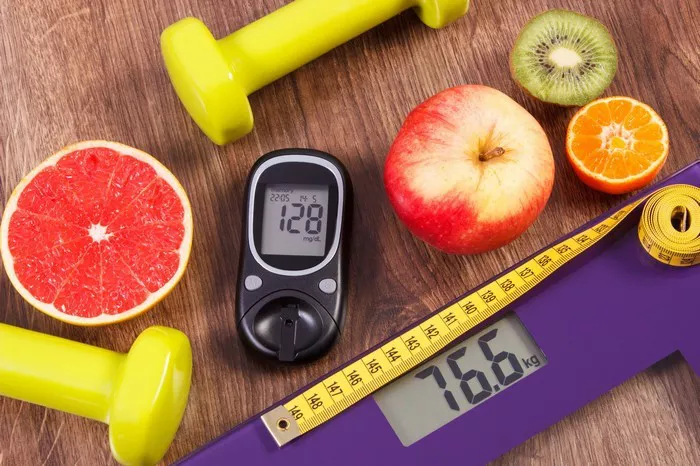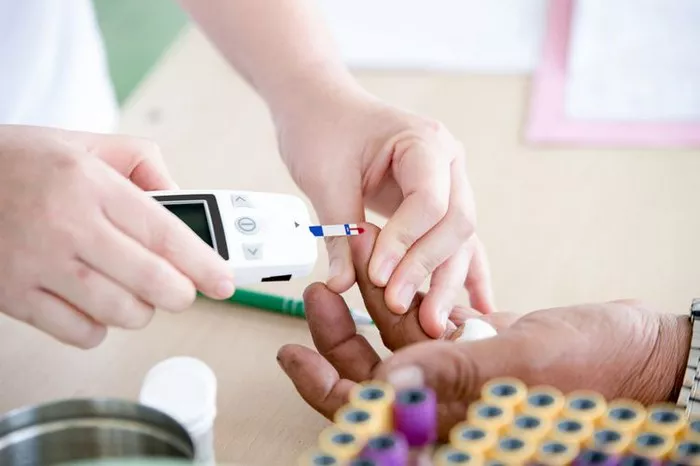Diabetes is a chronic condition that affects millions of people worldwide. It’s a complex disease characterized by high levels of glucose (sugar) in the blood, which can lead to serious health complications if not managed properly. Diabetes is not a single disease but rather a group of metabolic disorders that share the common feature of hyperglycemia. There are several types of diabetes, each with distinct causes, characteristics, and treatments. This article will explore the main types of diabetes, including Type 1, Type 2, Gestational Diabetes, and other less common forms, to provide a comprehensive understanding of their differences.
Type 1 Diabetes
Type 1 diabetes, previously known as juvenile diabetes or insulin-dependent diabetes, is an autoimmune condition. This means that the body’s immune system mistakenly attacks and destroys the insulin-producing beta cells in the pancreas. Without insulin, the body cannot properly regulate blood glucose levels.
Causes
The exact cause of Type 1 diabetes is unknown, but it is believed to involve a combination of genetic and environmental factors. The condition often develops in childhood or adolescence, but it can occur at any age. Certain viruses and environmental triggers may also play a role in the onset of the disease.
Symptoms
The symptoms of Type 1 diabetes typically develop rapidly and can include:
- Increased thirst and frequent urination
- Extreme hunger
- Unintended weight loss
- Fatigue and weakness
- Blurred vision
- Irritability and other mood changes
Treatment
Managing Type 1 diabetes requires lifelong insulin therapy. Patients must regularly monitor their blood glucose levels and administer insulin injections or use an insulin pump to maintain normal blood glucose levels. Additionally, individuals with Type 1 diabetes need to follow a balanced diet, engage in regular physical activity, and manage stress.
Type 2 Diabetes
Type 2 diabetes, formerly known as adult-onset diabetes or non-insulin-dependent diabetes, is the most common form of diabetes. It is characterized by insulin resistance, where the body’s cells do not respond effectively to insulin, and by a relative lack of insulin production.
Causes
Type 2 diabetes is primarily associated with lifestyle factors and genetics. Risk factors include:
- Obesity or being overweight
- Physical inactivity
- Poor diet, particularly one high in sugar and unhealthy fats
- Family history of diabetes
- Age, as the risk increases with age
- Ethnicity, with higher prevalence among African Americans, Hispanics, Native Americans, and Asian Americans
Symptoms
The symptoms of Type 2 diabetes develop more slowly than those of Type 1 and can be less noticeable. They include:
- Increased thirst and frequent urination
- Increased hunger
- Fatigue
- Blurred vision
- Slow-healing sores or frequent infections
- Areas of darkened skin, particularly in the armpits and neck
Treatment
Type 2 diabetes management focuses on lifestyle changes, such as adopting a healthy diet, increasing physical activity, and losing weight. Oral medications and non-insulin injectables are often prescribed to help control blood glucose levels. In some cases, insulin therapy may be necessary. Regular monitoring of blood glucose levels is also crucial.
Gestational Diabetes
Gestational diabetes occurs during pregnancy and typically resolves after childbirth. It is characterized by high blood glucose levels that develop during pregnancy in women who did not previously have diabetes.
Causes
The exact cause of gestational diabetes is not fully understood, but it is believed to be related to hormonal changes during pregnancy. These hormones can interfere with the action of insulin, leading to insulin resistance. Risk factors for gestational diabetes include:
- Being overweight or obese
- Having a history of gestational diabetes in a previous pregnancy
- Family history of diabetes
- Being older than 25 years
- Having polycystic ovary syndrome (PCOS)
Symptoms
Gestational diabetes often does not cause noticeable symptoms. However, some women may experience:
- Increased thirst
- Frequent urination
- Fatigue
- Nausea
Treatment
The treatment of gestational diabetes focuses on maintaining healthy blood glucose levels through diet, exercise, and, if necessary, insulin or oral medications. Regular monitoring of blood glucose levels is essential. Proper management of gestational diabetes is crucial to prevent complications for both the mother and the baby, such as high birth weight, preterm birth, and increased risk of developing Type 2 diabetes later in life.
Other Types of Diabetes
In addition to the main types of diabetes, there are other, less common forms, including:
Maturity-Onset Diabetes of the Young (MODY)
MODY is a rare form of diabetes that is caused by a single gene mutation. It typically develops in adolescence or early adulthood but does not fit the typical profiles of Type 1 or Type 2 diabetes. There are several subtypes of MODY, each associated with different genetic mutations. The treatment for MODY varies depending on the specific genetic mutation and can range from lifestyle changes and oral medications to insulin therapy.
Neonatal Diabetes
Neonatal diabetes is a rare form of diabetes that occurs in the first six months of life. It can be transient (temporary) or permanent. Genetic mutations are the primary cause of neonatal diabetes. Treatment typically involves insulin therapy, and in some cases, specific oral medications may be effective.
Secondary Diabetes
Secondary diabetes is a result of another medical condition or treatment that affects the pancreas or its ability to produce insulin. Conditions that can lead to secondary diabetes include:
- Pancreatitis
- Cystic fibrosis
- Hormonal disorders (e.g., Cushing’s syndrome, acromegaly)
- Medications (e.g., glucocorticoids, antipsychotics)
The treatment of secondary diabetes involves managing the underlying condition and using medications to control blood glucose levels.
Prevention and Management of Diabetes
While Type 1 diabetes cannot be prevented, there are steps that can be taken to reduce the risk of developing Type 2 diabetes and gestational diabetes. These steps include:
- Maintaining a Healthy Weight: Achieving and maintaining a healthy weight through a balanced diet and regular physical activity can significantly reduce the risk of Type 2 diabetes.
- Healthy Eating: Consuming a diet rich in whole grains, fruits, vegetables, lean proteins, and healthy fats while limiting the intake of processed foods, sugary beverages, and unhealthy fats can help manage blood glucose levels and prevent diabetes.
- Regular Physical Activity: Engaging in regular physical activity, such as brisk walking, cycling, or swimming, can improve insulin sensitivity and help control blood glucose levels.
- Regular Monitoring: For those at risk of diabetes, regular monitoring of blood glucose levels and regular check-ups with a healthcare provider can help detect diabetes early and manage it effectively.
Living with Diabetes
Living with diabetes requires ongoing management and a proactive approach to health. Here are some tips for managing diabetes effectively:
- Monitor Blood Glucose Levels: Regular monitoring of blood glucose levels is essential to ensure they remain within the target range. This helps in making informed decisions about diet, physical activity, and medications.
- Adhere to Medication Regimens: Taking prescribed medications as directed by a healthcare provider is crucial for managing diabetes. This includes insulin injections, oral medications, and other therapies.
- Healthy Eating: Following a balanced diet that includes a variety of nutrient-dense foods and limits sugary and processed foods is essential for managing blood glucose levels.
- Stay Active: Regular physical activity can help improve insulin sensitivity, control blood glucose levels, and maintain a healthy weight.
- Regular Check-ups: Regular visits to a healthcare provider for monitoring and management of diabetes and related health conditions are important. This includes routine blood tests, eye exams, and foot care.
- Education and Support: Staying informed about diabetes and its management through education and support groups can help individuals better manage their condition and improve their quality of life.
See also: What’s Acute Hyperglycemia
Conclusion
Diabetes is a complex and multifaceted condition with different types, each requiring unique management strategies. Understanding the differences between Type 1, Type 2, gestational diabetes, and other forms of diabetes is crucial for effective management and prevention. While Type 1 diabetes is an autoimmune condition that necessitates lifelong insulin therapy, Type 2 diabetes is often associated with lifestyle factors and can be managed with lifestyle changes and medications. Gestational diabetes occurs during pregnancy and requires careful monitoring to prevent complications. Other rare forms of diabetes, such as MODY and neonatal diabetes, have specific genetic causes and treatment protocols. By taking proactive steps to manage diabetes and adopting a healthy lifestyle, individuals can live well with diabetes and reduce the risk of complications.
Related topics:
What’s the Different Types of Diabetes



























